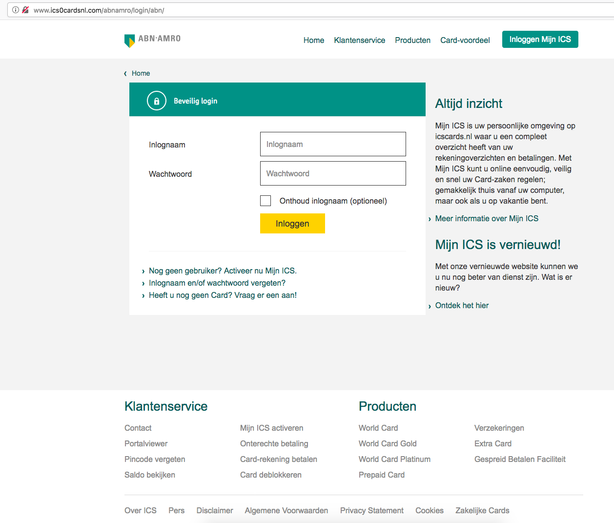Succession Planning For The Ultra-Wealthy: A Growing Trend

Table of Contents
The Unique Challenges of Ultra-High-Net-Worth Succession Planning
Succession planning for the ultra-wealthy presents unique hurdles compared to traditional estate planning. The sheer scale and complexity of assets, coupled with intricate family dynamics, necessitate a multi-faceted approach.
Complex Asset Structures
UHNWIs often possess a diverse portfolio of assets far beyond typical investments. This complexity significantly complicates succession planning.
- Examples of complex assets: Real estate portfolios spanning multiple countries, privately held companies, valuable art collections, intellectual property rights, and significant holdings in private equity or hedge funds.
- Specialized expertise: Accurately valuing and efficiently transferring these diverse assets demands specialized expertise in areas such as international wealth transfer, complex asset management, and sophisticated tax strategies. Ignoring these complexities can lead to significant financial losses and legal disputes. The need for experienced professionals in valuation and transfer is paramount.
Family Dynamics and Governance
Family harmony is often the greatest challenge in ultra-high-net-worth succession planning. Disagreements over wealth distribution, differing visions for the family's future, and power struggles can easily derail the process.
- Family councils: Establishing formal family councils provides a structured platform for communication and conflict resolution. These councils can facilitate open dialogue, fostering understanding and agreement on key decisions.
- Trust structures: Sophisticated trust structures can protect assets, ensure a smooth transfer of wealth, and mitigate potential family conflicts. These structures allow for careful management of wealth distribution over time.
- Mediation strategies: Proactive mediation strategies can prevent conflicts before they escalate. Engaging experienced mediators allows for objective guidance and conflict resolution. Family governance is essential for long-term stability and preservation of family wealth.
Tax Implications and Regulatory Compliance
International tax laws add layers of complexity to wealth transfer for the ultra-wealthy. Navigating these regulations requires expert guidance to minimize tax burdens and ensure compliance.
- International tax laws: Understanding the intricacies of international tax laws is crucial, as wealth often spans multiple jurisdictions. Optimizing tax efficiency requires a deep understanding of relevant treaties and regulations.
- Estate and gift taxes: Minimizing estate and gift taxes is a critical component of effective succession planning. Strategic gifting and estate planning techniques are essential for preserving the family's wealth.
- Philanthropic strategies: Strategic philanthropy can offer significant tax advantages while aligning with family values and creating a lasting legacy. Charitable giving can be a powerful tool for both tax planning and social impact.
Key Strategies for Effective Succession Planning
Successfully navigating the challenges of succession planning for the ultra-wealthy requires a well-defined, comprehensive strategy.
Developing a Comprehensive Plan
A holistic approach encompassing legal, financial, and family considerations is essential.
- Estate planning documents: Thorough estate planning documents, including wills and trusts, are foundational to a robust plan. These documents clearly outline the distribution of assets and ensure the smooth transfer of wealth.
- Family constitutions: A family constitution outlines family values, governance structures, and expectations, providing a framework for future generations. This document serves as a guide for family decisions and helps prevent future conflicts.
- Investment strategies: Sophisticated investment strategies tailored to long-term wealth preservation and growth are essential for maintaining the family's financial stability. This may involve diversifying investments across asset classes and geographies.
- Philanthropic goals: Integrating philanthropic goals into the succession plan ensures that the family's values are carried forward and contributes to positive societal impact.
Engaging the Right Professionals
Assembling a multidisciplinary team of highly qualified professionals is crucial.
- Due diligence: Thorough due diligence is essential when selecting advisors. Experience and specialization in high-net-worth estate planning are critical.
- Multidisciplinary team: The team should comprise experienced lawyers specializing in estate planning and international tax law, certified financial planners with expertise in wealth management, and potentially family therapists to address familial complexities. The expertise of a family office can streamline these processes.
Educating the Next Generation
Preparing heirs for responsible wealth management is paramount.
- Financial literacy programs: Providing comprehensive financial literacy programs equips future generations with the knowledge and skills to manage their inheritance responsibly.
- Mentorship opportunities: Connecting heirs with experienced mentors provides guidance and support in navigating the complexities of wealth management.
- Family governance training: Training in family governance ensures that future generations understand and participate in the family's decision-making processes. This fosters collaboration and minimizes potential conflicts.
The Growing Trend of Family Offices and Specialized Services
The increasing complexity of wealth management for the ultra-wealthy has fueled the growth of family offices and specialized wealth management services. These services offer comprehensive support, consolidating expertise and resources to streamline the succession planning process. They provide benefits like centralized management of assets, customized strategies tailored to individual family needs, and access to a network of specialized professionals. This trend reflects the growing need for dedicated support in navigating the unique challenges of ultra-high-net-worth succession planning.
Conclusion
Effective succession planning for the ultra-wealthy requires a proactive, multi-faceted approach that addresses complex asset structures, intricate family dynamics, and significant tax implications. Developing a comprehensive plan, engaging a skilled multidisciplinary team, and educating future generations are crucial steps to ensure the successful transfer of wealth and the preservation of family legacy. Don't wait until it's too late. Contact a specialist in succession planning for the ultra-wealthy today to secure your family's future and protect your hard-earned legacy. Explore resources and find a specialist who understands the nuances of high-net-worth family succession and can guide you through this crucial process.

Featured Posts
-
 Pop Suisse Stephane S Attaque Au Marche Parisien
May 22, 2025
Pop Suisse Stephane S Attaque Au Marche Parisien
May 22, 2025 -
 Risicos Voor De Voedingsindustrie Abn Amro Over De Afhankelijkheid Van Arbeidsmigranten
May 22, 2025
Risicos Voor De Voedingsindustrie Abn Amro Over De Afhankelijkheid Van Arbeidsmigranten
May 22, 2025 -
 David Walliams Bgt Exit An Analysis Of The Situation
May 22, 2025
David Walliams Bgt Exit An Analysis Of The Situation
May 22, 2025 -
 The Goldbergs Comparing The Show To Real 80s Family Dynamics
May 22, 2025
The Goldbergs Comparing The Show To Real 80s Family Dynamics
May 22, 2025 -
 The Latest Ev News An Exclusive Look At The Ford Nissan Battery Plant Deal
May 22, 2025
The Latest Ev News An Exclusive Look At The Ford Nissan Battery Plant Deal
May 22, 2025
Latest Posts
-
 Illinois Gas Prices Drop Following National Trend
May 22, 2025
Illinois Gas Prices Drop Following National Trend
May 22, 2025 -
 Rising Gas Prices In Philadelphia Current Average And Future Outlook
May 22, 2025
Rising Gas Prices In Philadelphia Current Average And Future Outlook
May 22, 2025 -
 Major Route 581 Traffic Disruption Due To Box Truck Accident
May 22, 2025
Major Route 581 Traffic Disruption Due To Box Truck Accident
May 22, 2025 -
 6 Cent Average Gas Price Increase Predicted For Philadelphia Market
May 22, 2025
6 Cent Average Gas Price Increase Predicted For Philadelphia Market
May 22, 2025 -
 Gas Prices In Philadelphia 6 Cent Average Increase And Future Projections
May 22, 2025
Gas Prices In Philadelphia 6 Cent Average Increase And Future Projections
May 22, 2025
